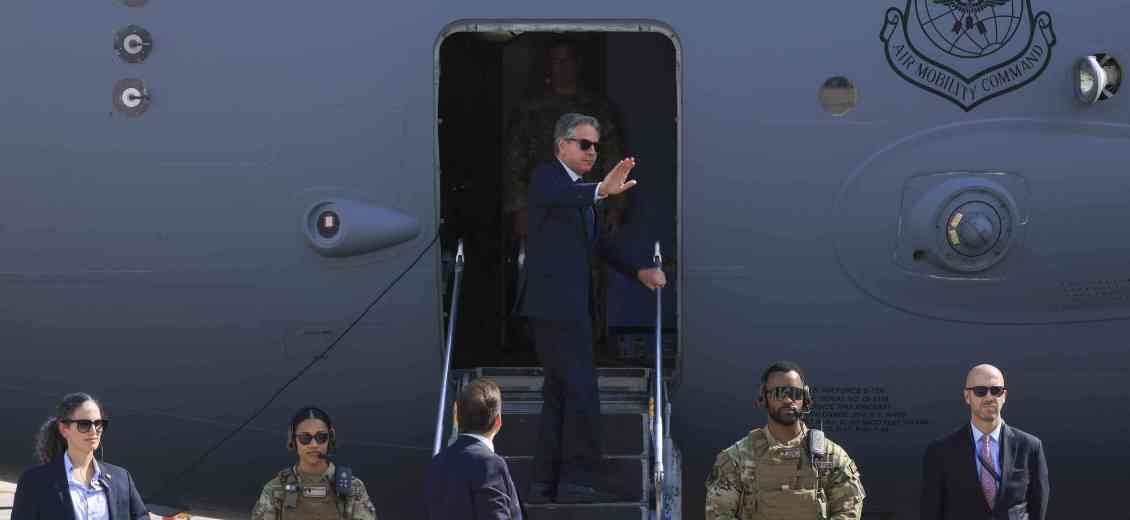- Home
- Middle East
- Blinken Embarks on Syria Crisis Tour After Assad’s Fall

US Secretary of State Antony Blinken. ©AFP
US Secretary of State Antony Blinken heads Wednesday on an emergency tour after the overthrow of Syria's dictatorship, in a new, last-minute attempt to shape a Middle East legacy after a turbulent year.
The top US diplomat of President Joe Biden, who has little more than one month in office, is set to press principles he has outlined for a new government including that it be inclusive of Syria's diverse populations.
Blinken will head first to the Red Sea port of Aqaba in Jordan, Syria's often uneasy neighbor and a key US partner in the region, before going to Turkey, the main supporter of the Islamist movement that toppled strongman Bashar al-Assad over the weekend.
Blinken will stress "the United States' support for an inclusive, Syrian-led transition to an accountable and representative government," State Department spokesman Matthew Miller said.
He will call for a Syria that is not "a base of terrorism or posing a threat to its neighbors" -- a nod to concerns of both Turkey and Israel, which has ramped up strikes on its historic adversary since Assad's fall.
Turkey, despite being a NATO ally, has long butted heads with the United States over Syria but is now seen as the key foreign power after its partner Hayat Tahrir al-Sham (HTS), a former Al-Qaeda-linked group, launched a surprise lightning offensive that ended half-a-century of iron-fisted rule by the Assad family.
In a statement on Tuesday, Blinken called for a "credible, inclusive and non-sectarian" government to replace Assad, a secular-minded member of the minority Alawite sect.
"All nations should pledge to support an inclusive and transparent process and refrain from external interference," Blinken said.
"The United States will recognize and fully support a future Syria government that results from this process," he said.
Blinken on his trip will also stress "the urgent need to conclude a ceasefire agreement," Miller said.
Looking at legacy
Defying appeals by the Biden administration, Israel expanded its war to Lebanon and hit hard Hezbollah as well as Iran, which counted on Assad as its main Arab ally.
Assad also relied on air support from Russia, which relied on Assad to maintain a Mediterranean naval base and has been distracted by its invasion of Ukraine.
Biden, under fire for his Middle East policy and failure to secure an Israel-Hamas deal, has sought credit after the fall of Assad.
"Our approach has shifted the balance of power in the Middle East," Biden said, pointing to a combination of support for partners, diplomacy, sanctions and periodic US strikes in Syria separately targeting Iranian-linked groups and remnants of the Islamic State group, which is an adversary of Shiite Iran.
President-elect Donald Trump similarly cast Syria in political terms, pointing out that Russia made inroads under former president Barack Obama.
In contrast to Biden and Blinken, Trump has scoffed at US interests in Syria, where some 900 US troops remain on a mission against the Islamic State, calling the country "a mess" to be avoided.
It will be up to Trump, who has a close relationship with Turkish President Recep Tayyip Erdogan, to determine how to deal with HTS, which is designated as a terrorist group by the United States.
Shaun Tandon, with AFP
Read more



Comments